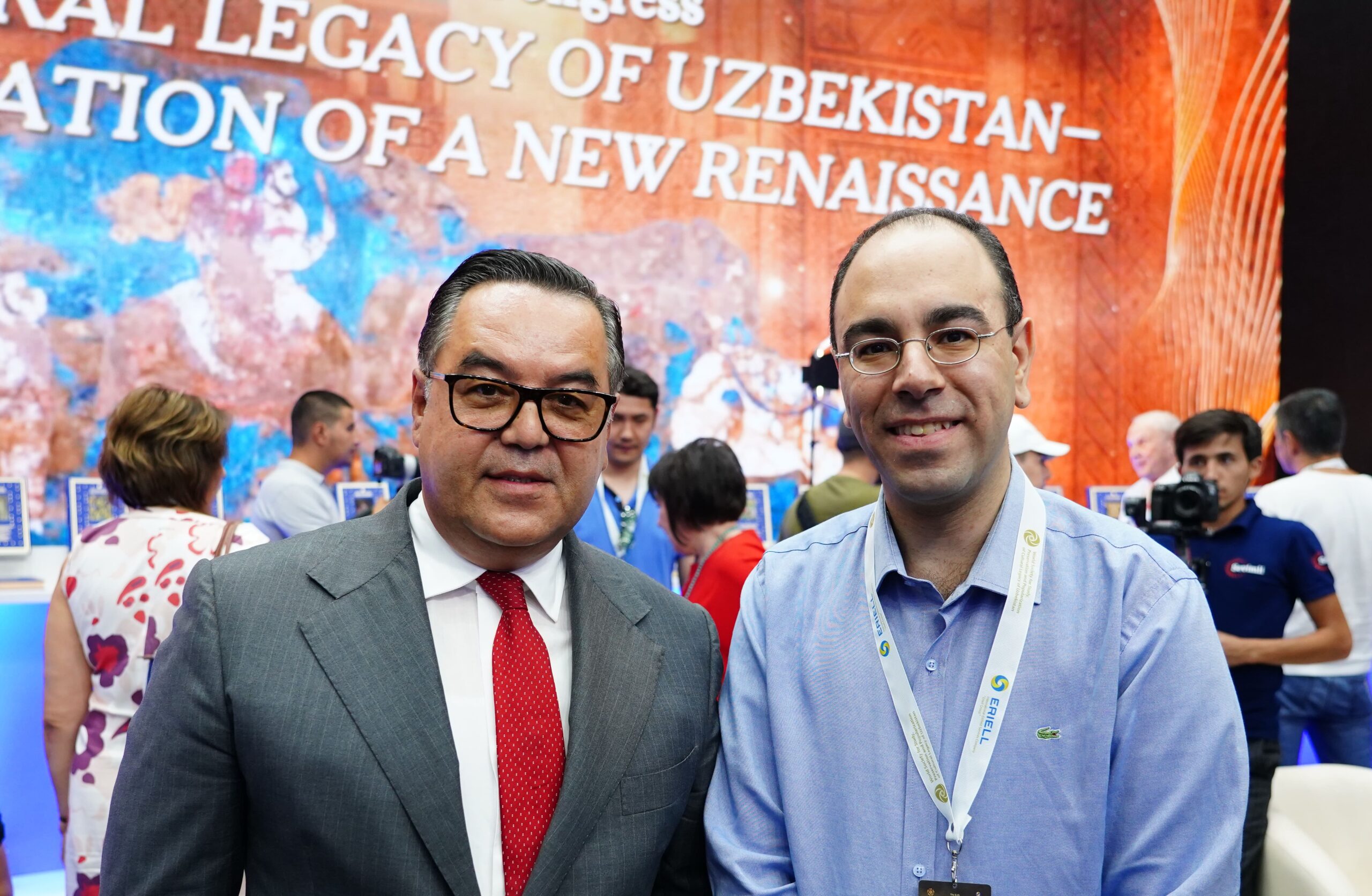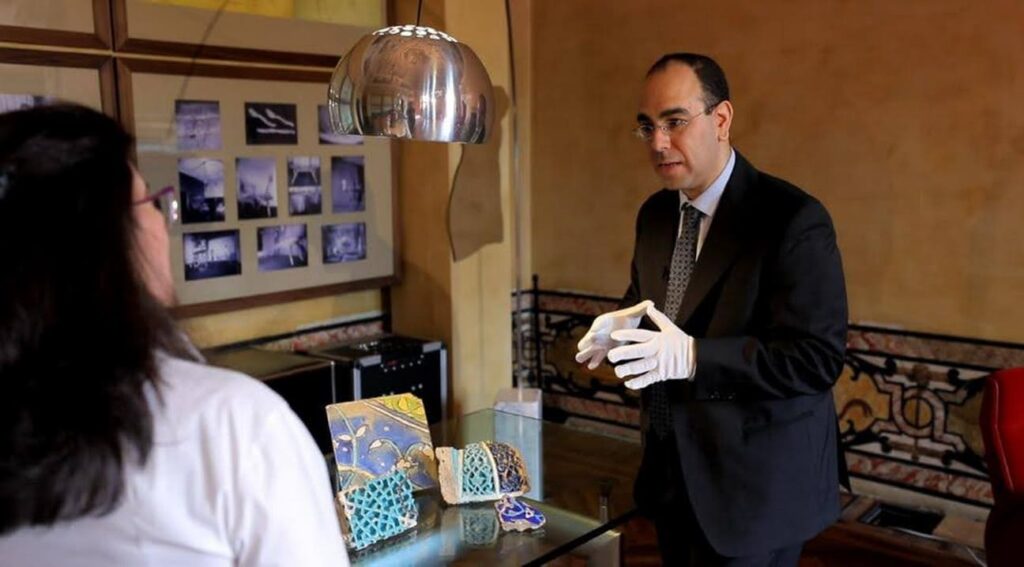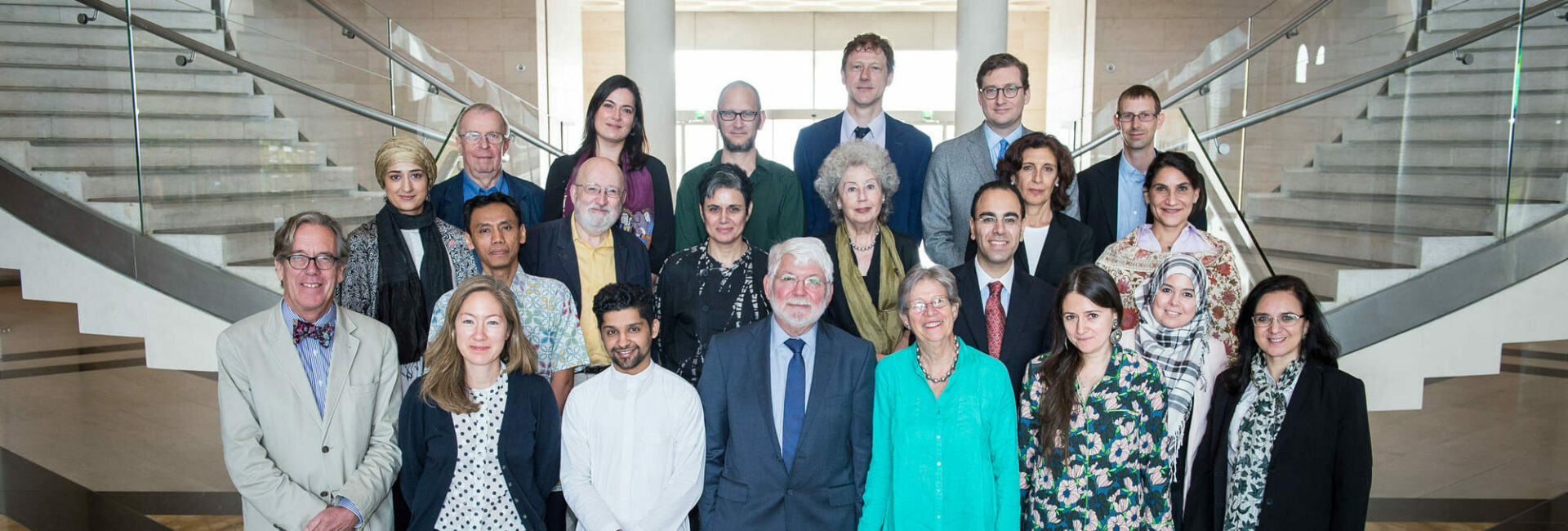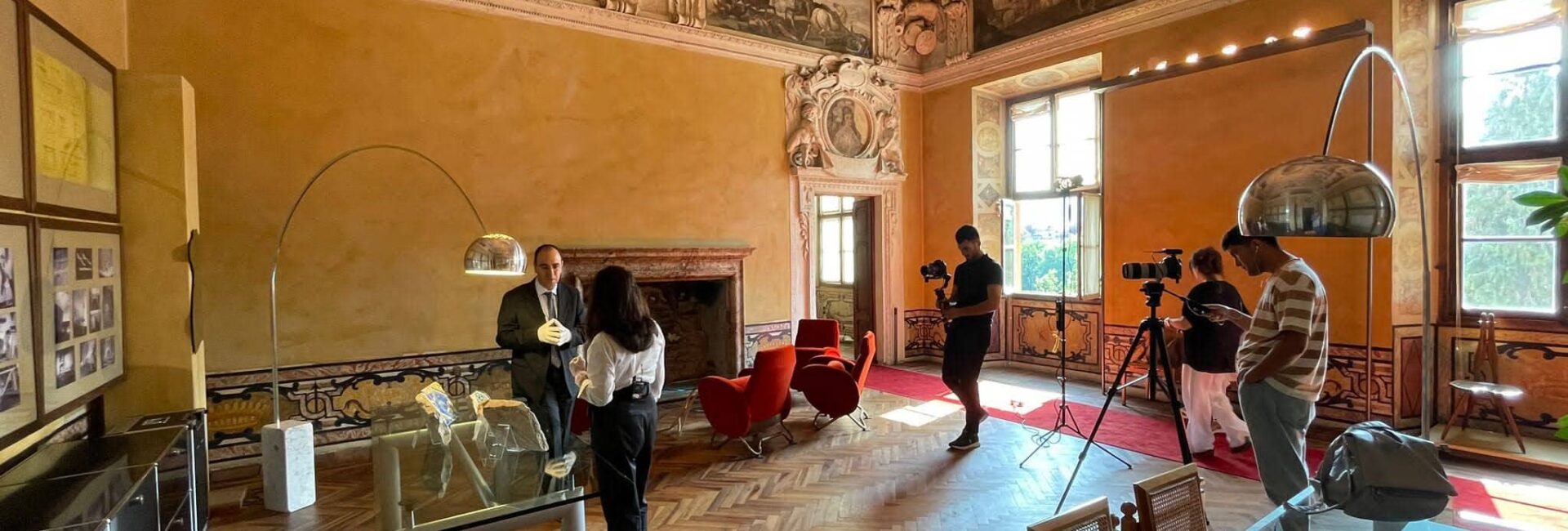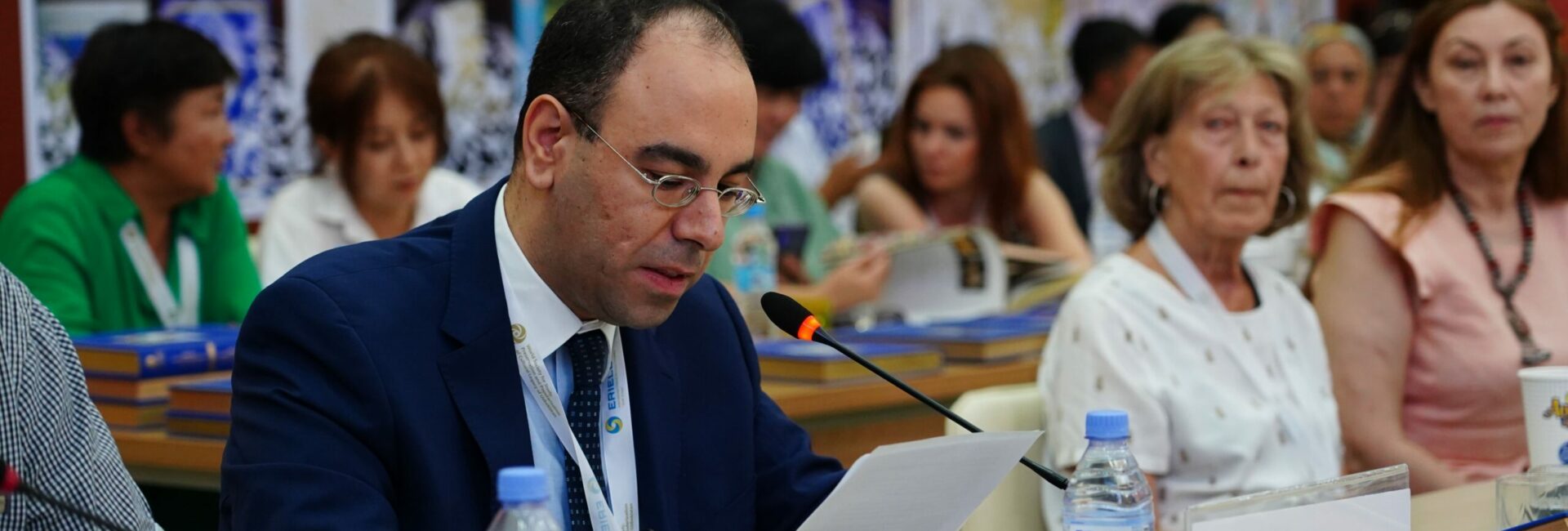Art and Art collecting
Sherif El Sebaie worked as Scientific Consultant during the installation of the Gallery of Islamic Art at the Museum of Oriental Art in Turin and acted as Coordinator of the academic delegation that travelled to Turkey to investigate the possibilities of mounting an exhibition of Ottoman Art in Italy.
In 2015 he was chosen by Virginia Commonwealth University (VCU) School of the Arts – out of 125 international candidates – as one of the 10 Fellows of the Hamad bin Khalifa Symposium on Islamic Art (Doha, Qatar), the leading international conference on Islamic art and architecture.
Since 2020, he is a member of the World Society on the Study, Preservation and Popularization of the Cultural Heritage of Uzbekistan. During the Society’s VI International Congress held in Samarkand, where the volume on the Uzbek heritage in the Italian collections to which he contributed was presented, he also won the Society’s prize for the most creative artistic photographic reportage.
In 2023-24, he held the position of Operations Coordinator and Organizational Supervisor for the Conservation Science Workhops held in Al-Ula (Kingdom of Saudi Arabia) by the Italian Cultural Heritage Conservation and Restoration Centre “La Venaria Reale” on behalf of the Royal Commission for Alula (RCU).
Sherif El Sebaie is the creator of the Extracurricular Course in Arabic Language, Civilization and Arts of Islam at the Turin Polytechnic, which anticipated by several years the National Security Language Initiative launched by the US State Department.
He is particularly active in the recovery and promotion of the Egyptian artistic and cultural heritage from the 19th and 20th centuries dispersed abroad, with interests ranging from Egyptomania to Orientalism. He is credited with two important findings on the antiques market: a gravy boat that belonged to Egyptian Royal Prince Yussef Kamal and the prototype of the base – believed lost – of the centerpiece of the Egyptian-style porcelain service commissioned at the Richard Ginori factory by the Khedive of Egypt and Sudan, Ismail Pasha.





